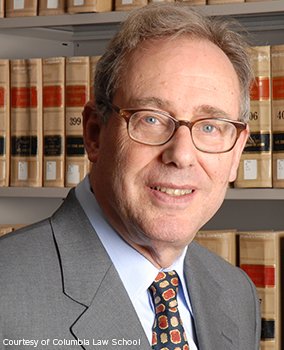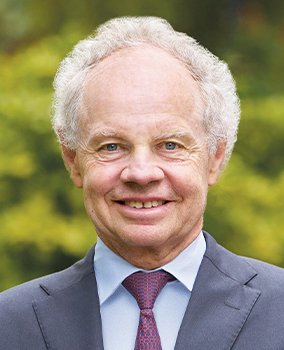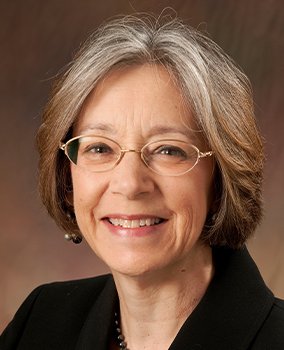In the early 1920’s, a group of prominent American judges, lawyers, and law professors formed "The Committee on the Establishment of a Permanent Organization for the Improvement of the Law," led by Elihu Root, George Wickersham, and William Draper Lewis. The Committee reported to the members of the legal profession that the “law is unnecessarily uncertain and complex,” and as a result, there is a “general dissatisfaction with the administration of justice.”
According to the Committee, the law's uncertainty stemmed in part from a lack of agreement on fundamental principles of the common law, while the law's complexity was attributed to the numerous variations within different jurisdictions.
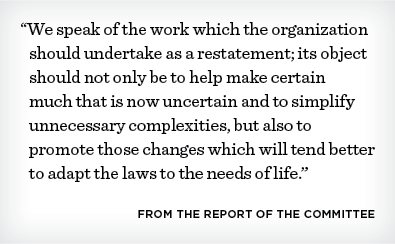
In order to remedy these issues, the Committee proposed the formation of The American Law Institute in order "to promote the clarification and simplification of the law and its better adaptation to social needs, to secure the better administration of justice and to encourage and carry on scholarly and scientific legal work."
One of the Committee’s suggestions was for a Restatement of the Law that “should not only be to help make certain much that is now uncertain and to simplify unnecessary complexities, but also to promote those changes which will tend better to adapt the laws to the needs of life.” A Restatement should be critical and constructive, and although largely based on statutes and decisions, “it should not be confined to examining and setting forth the law applicable to those situations which have been the subject of court action or statutory regulation, but should also take account of situations not yet discussed by courts or dealt with by legislatures….”
The Committee then recommended that the work be done by members that represent the profession as a whole. The diversity of voice, in all ways, would prove essential to the work that the Institute produces.
Based on the recommendation of the Committee, The American Law Institute was incorporated in 1923. That year, work began on the first four Restatements, covering the subjects of Agency, Conflict of Laws, Contracts, and Torts. Additional early leaders of ALI included William Howard Taft, Charles Evans Hughes, Learned Hand, and Benjamin Cardozo. ALI held its first Annual Meeting in February 1923.

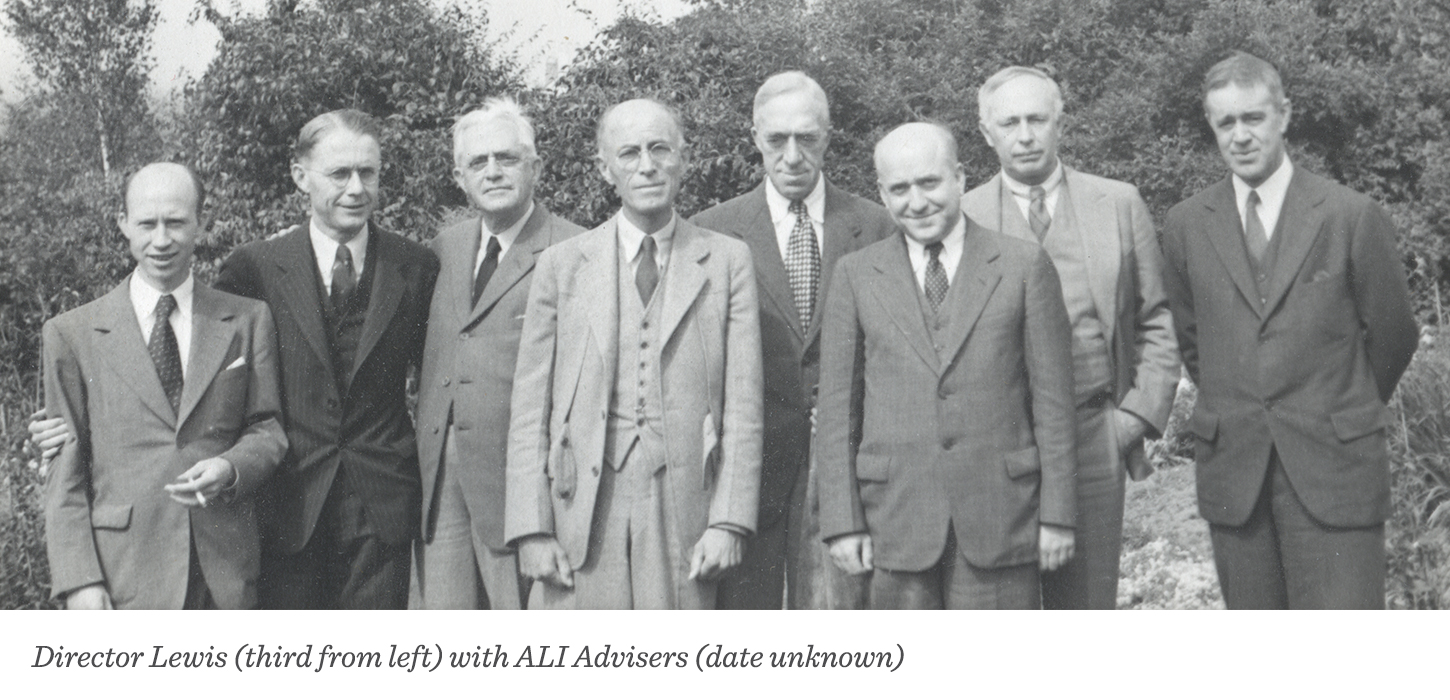
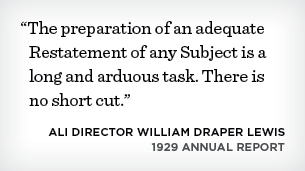 Although the Institute had yet to publish a Restatement, the volume of sales of Tentative Drafts and of the Code of Criminal Procedure reflected that the Institute’s work, even in its early stages, was regarded with respect by the legal community.
Although the Institute had yet to publish a Restatement, the volume of sales of Tentative Drafts and of the Code of Criminal Procedure reflected that the Institute’s work, even in its early stages, was regarded with respect by the legal community.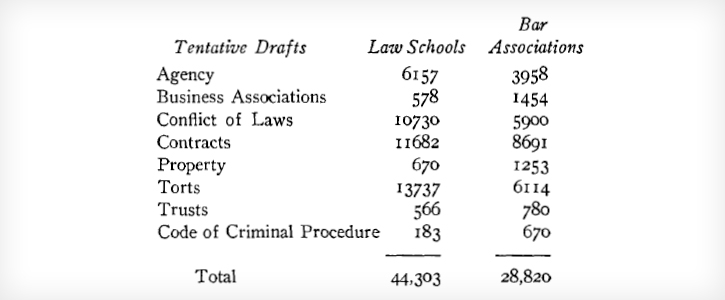
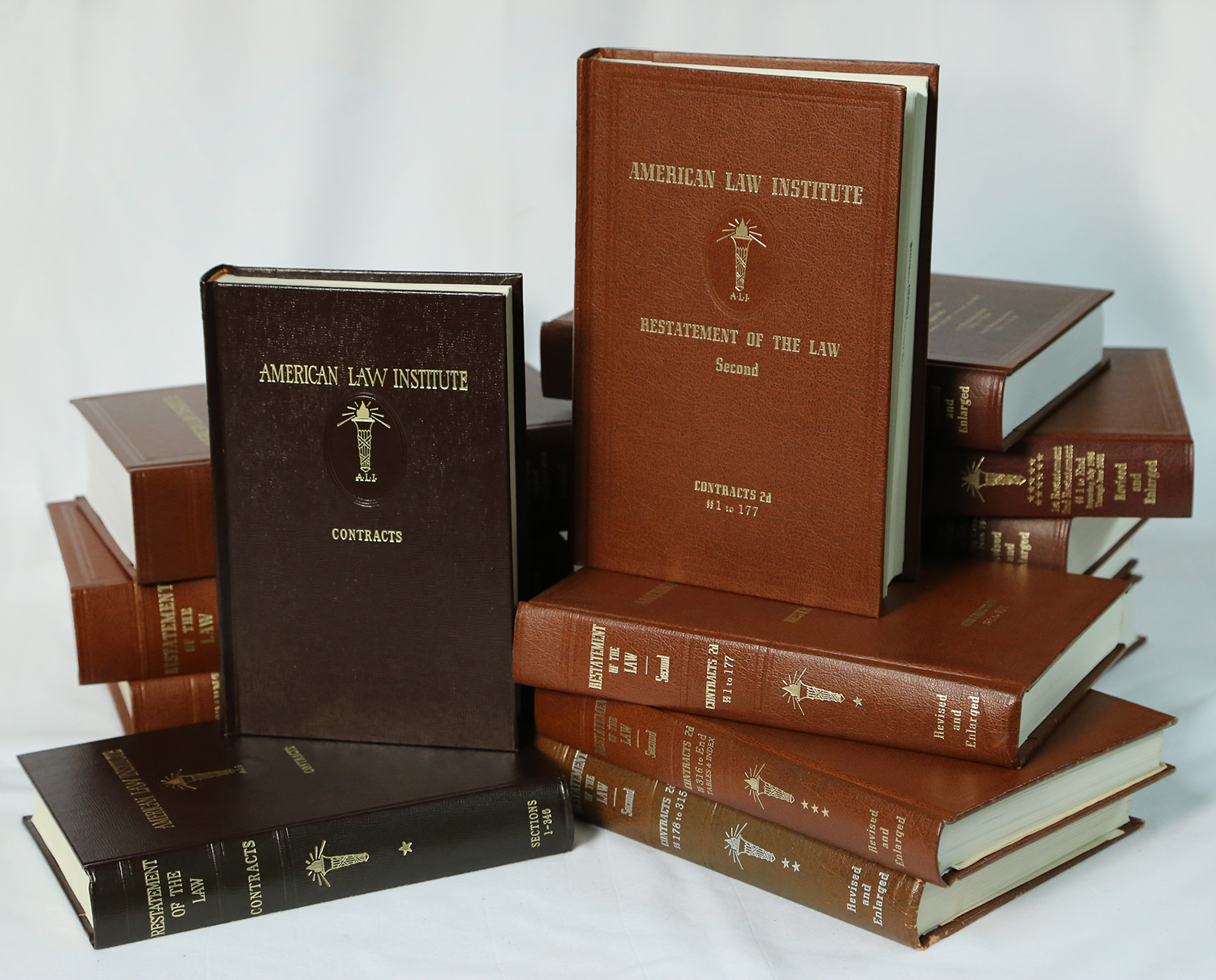 the great majority of the Restatement’s drafts were already being used by the courts, by practitioners, and in law schools for more than three years prior to beginning the work of the final revision.
the great majority of the Restatement’s drafts were already being used by the courts, by practitioners, and in law schools for more than three years prior to beginning the work of the final revision.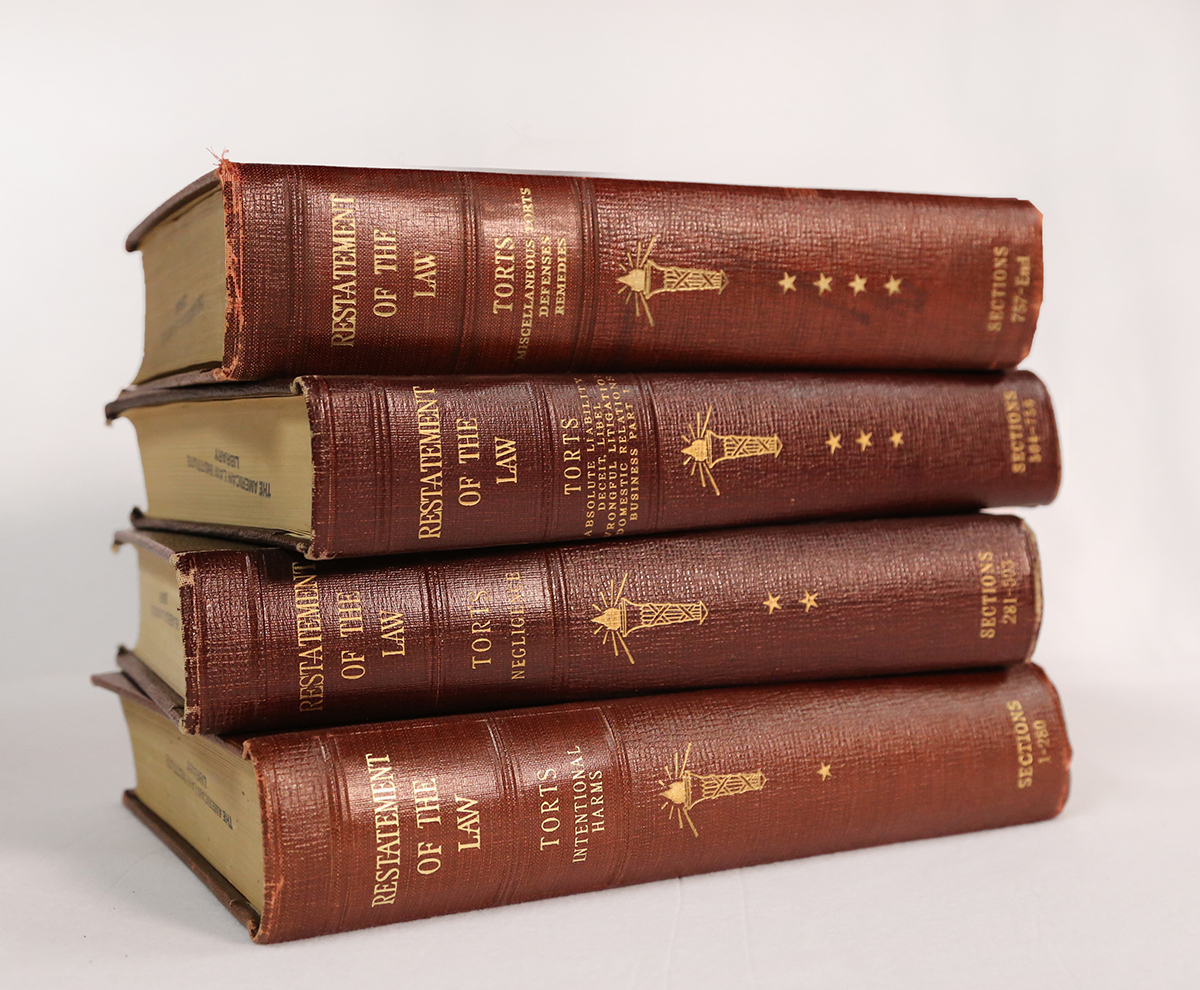 In 1939, the Institute published the fourth volume of Restatement of the Law, Torts, marking the completion of this 16-year endeavor.
In 1939, the Institute published the fourth volume of Restatement of the Law, Torts, marking the completion of this 16-year endeavor.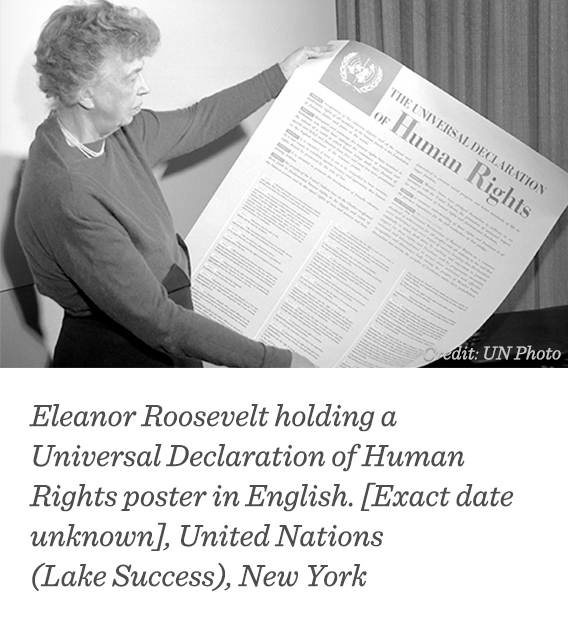 and influential, projects undertaken by The American Law Institute is the
and influential, projects undertaken by The American Law Institute is the 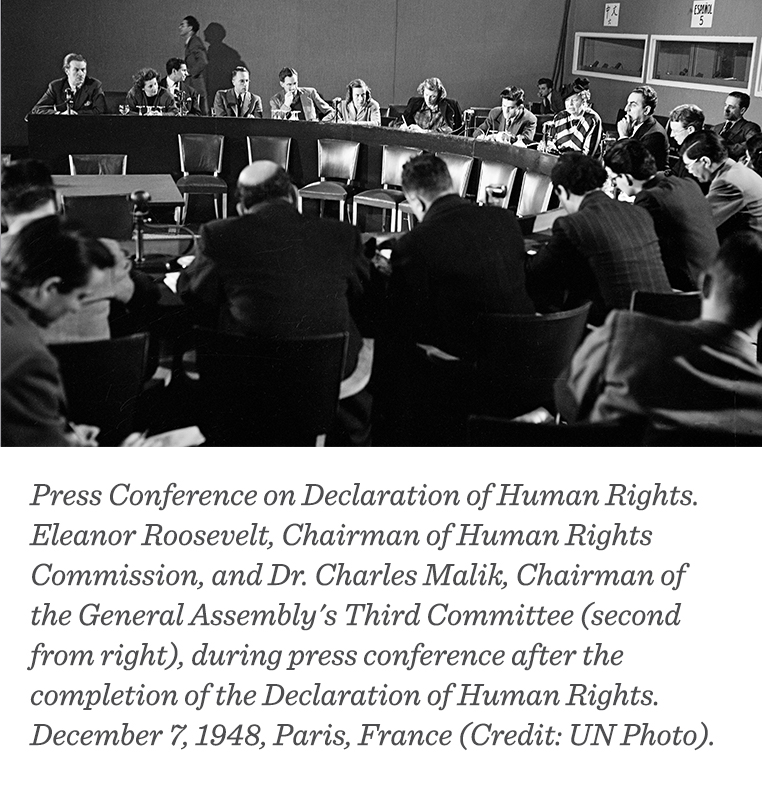 After its adoption in 1948, the
After its adoption in 1948, the 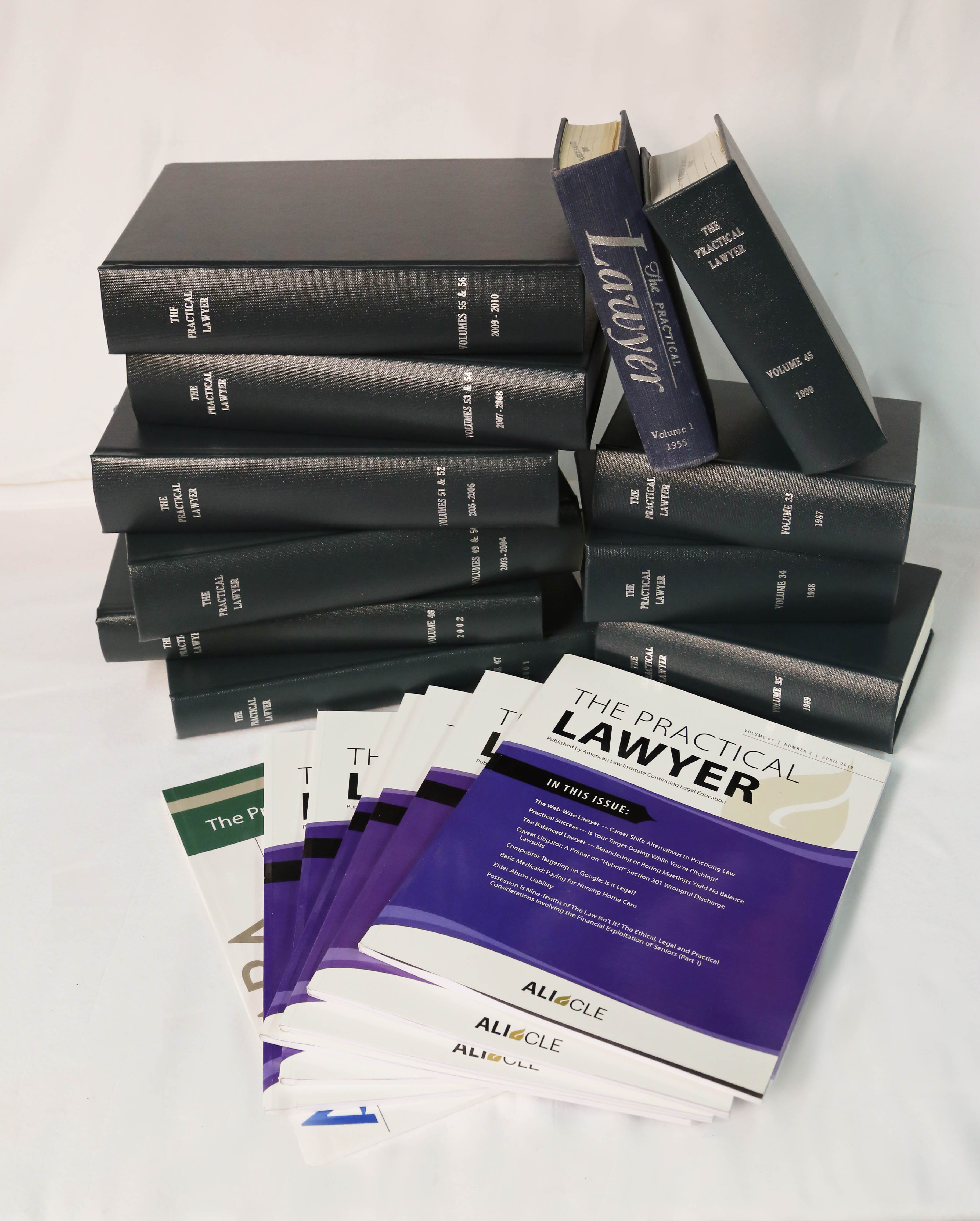 ALI-ABA would assist in the creation of state and local sponsoring agencies (with the help of bar associations, law schools, and other lawyer groups), supply literature and "know how" for lectures, and provide program panelists.
ALI-ABA would assist in the creation of state and local sponsoring agencies (with the help of bar associations, law schools, and other lawyer groups), supply literature and "know how" for lectures, and provide program panelists.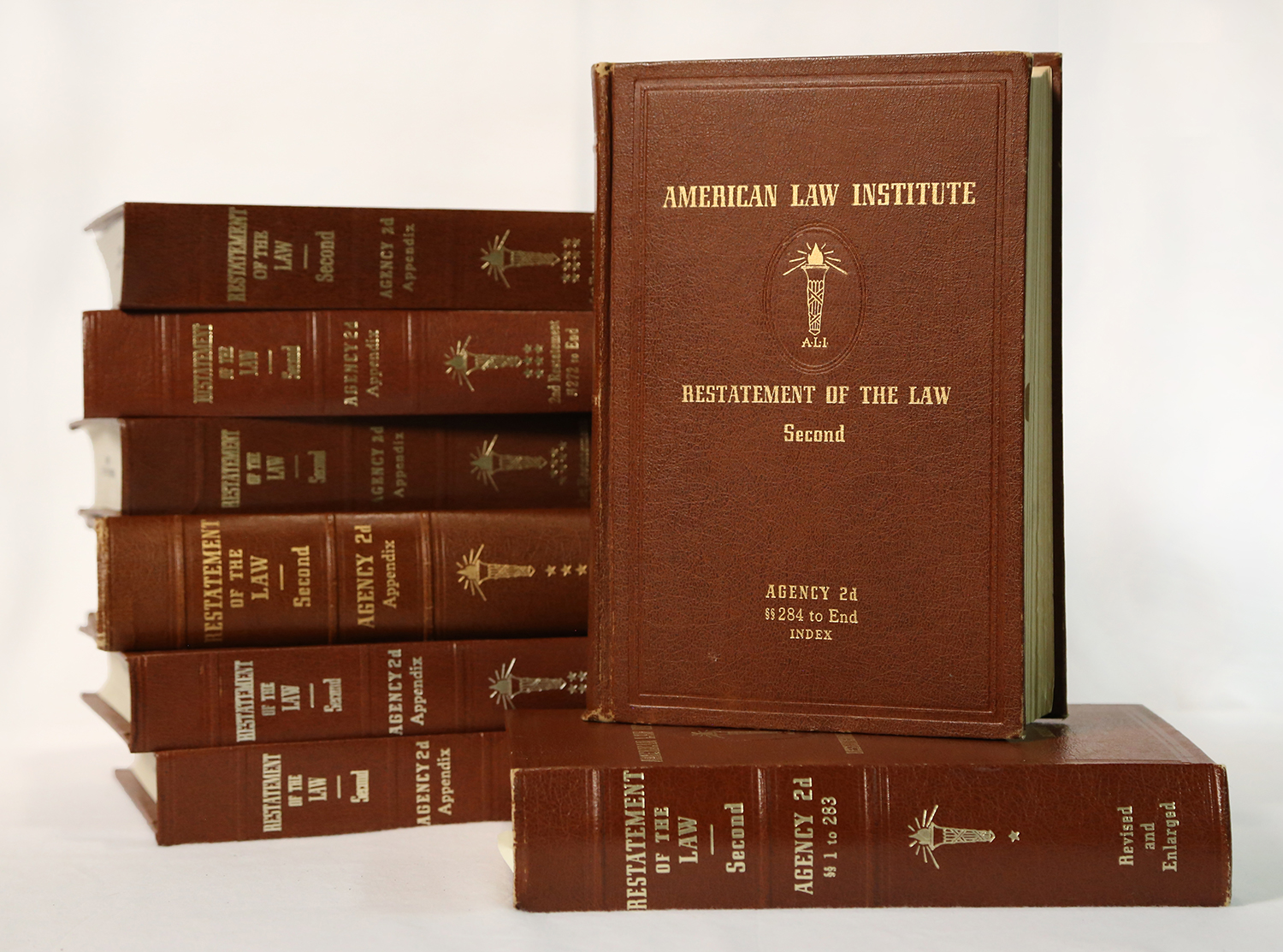 R. Ammi Cutter, Edwin D. Dickinson, Learned Hand, and ALI’s President and Director—had the responsibility of making decisions on matters of form and style to present the work in the best way possible.
R. Ammi Cutter, Edwin D. Dickinson, Learned Hand, and ALI’s President and Director—had the responsibility of making decisions on matters of form and style to present the work in the best way possible. 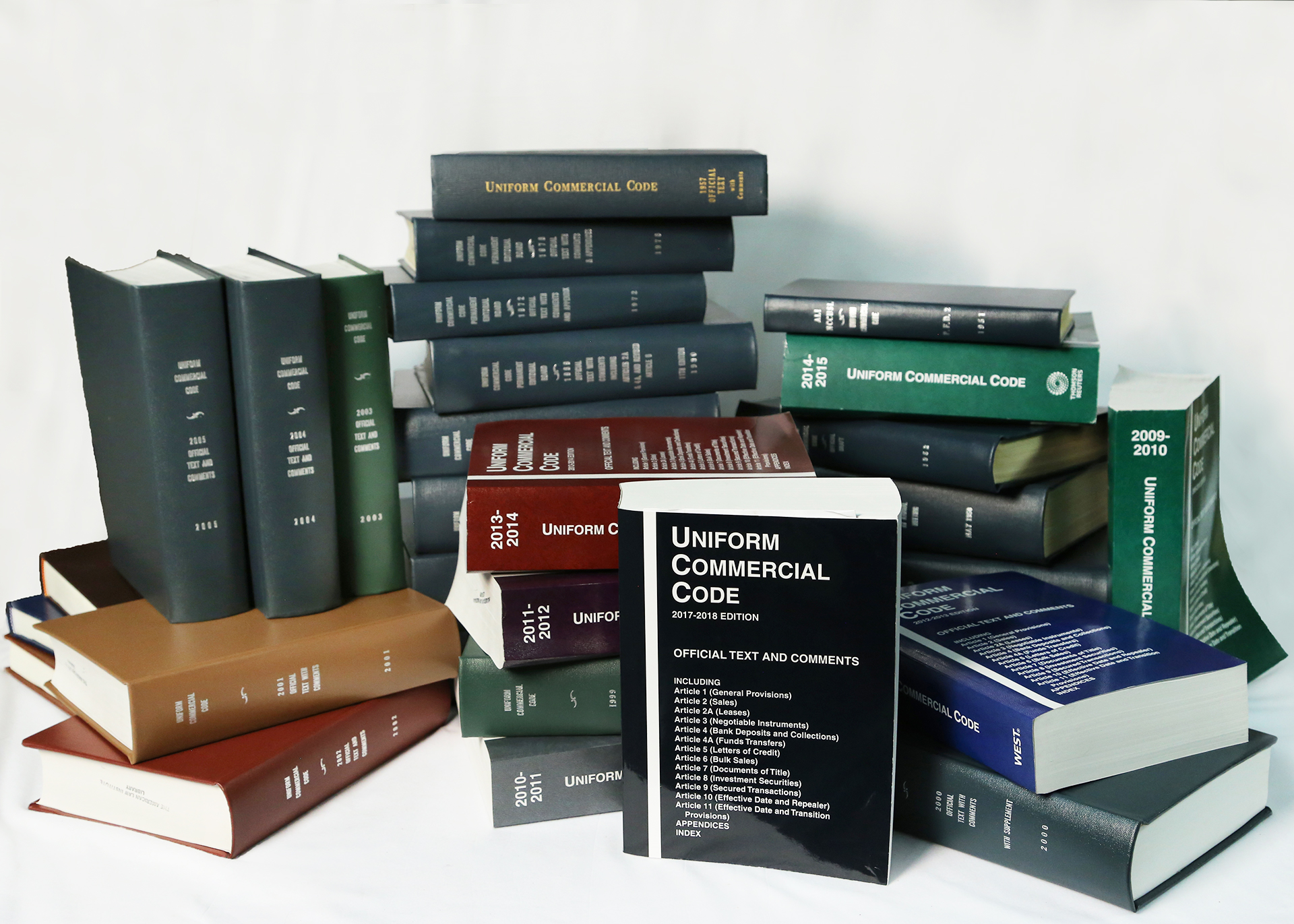 The UCC is a
The UCC is a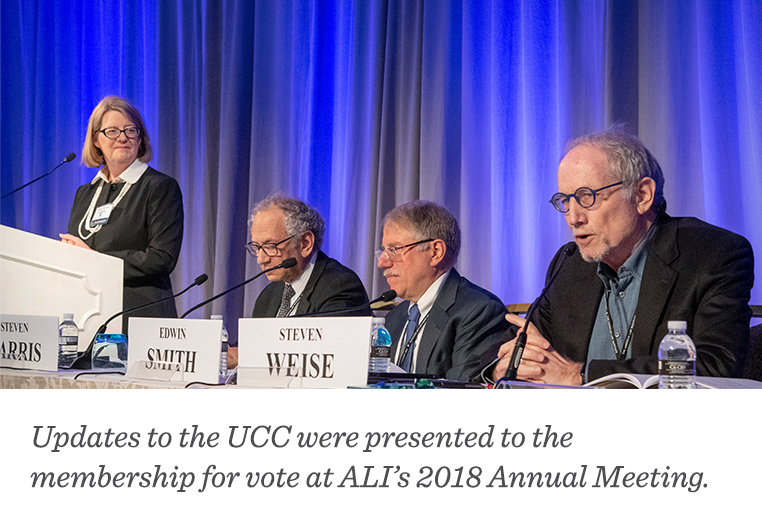
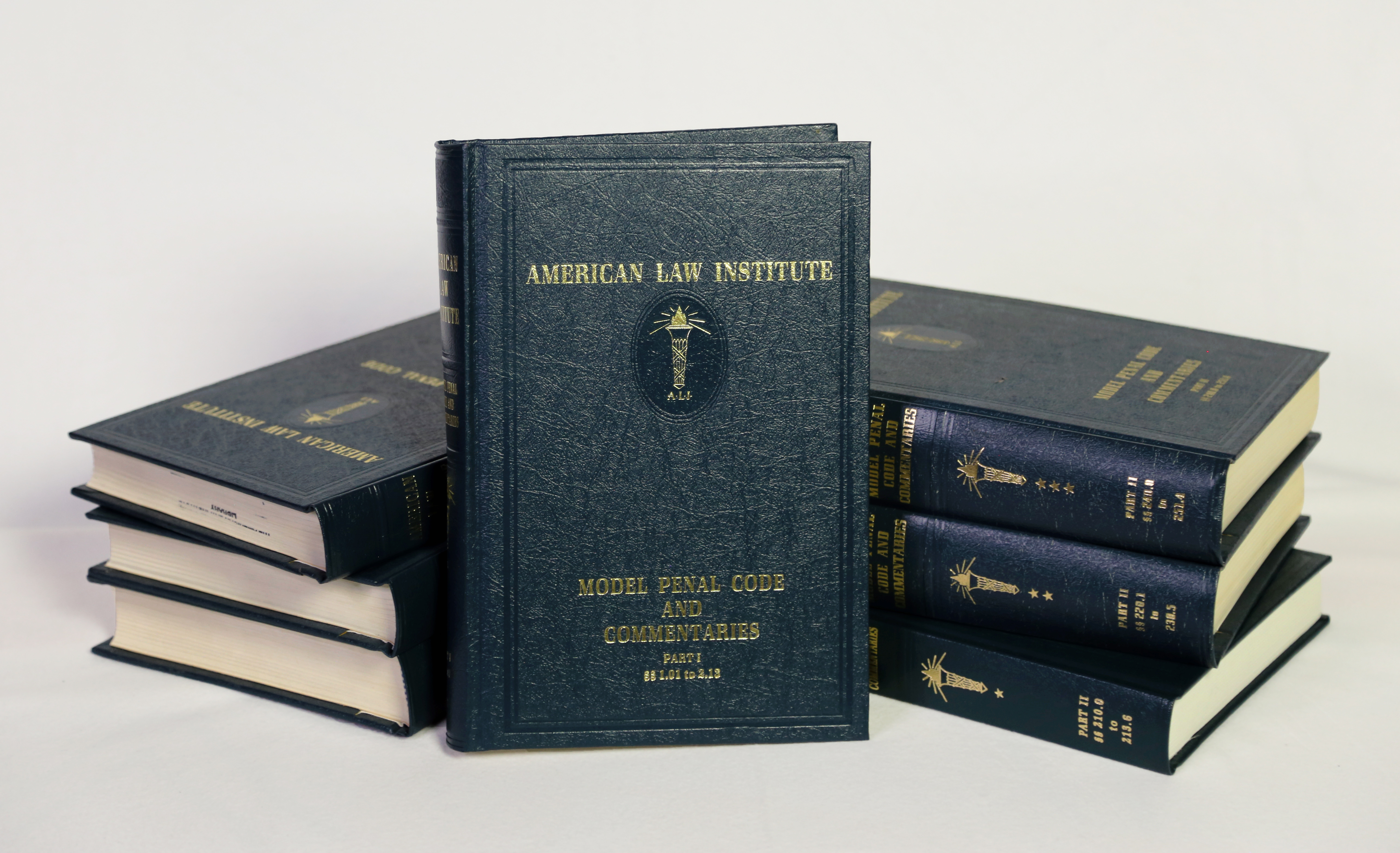
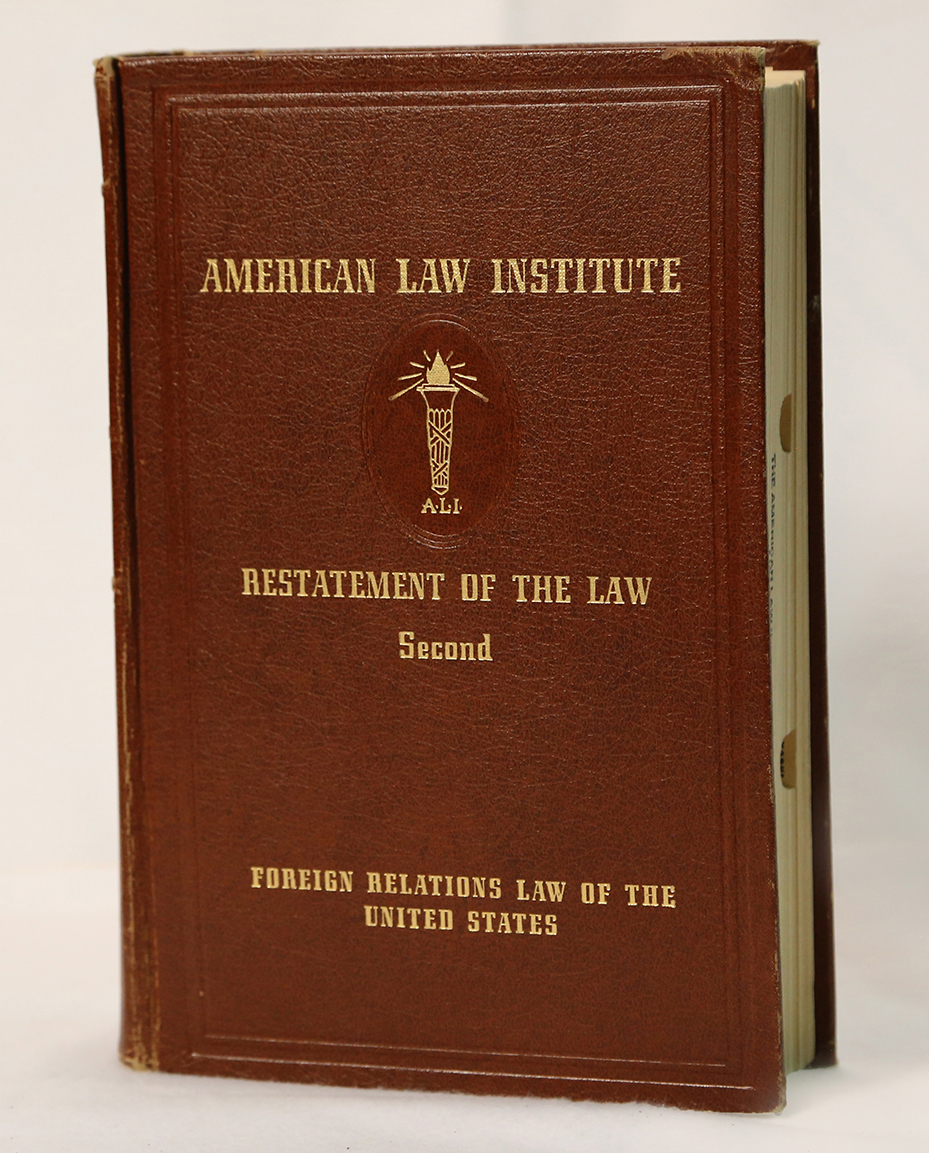 At a time when the maintenance and development of law in the governance of international relationships increasingly engages the attention and the hopes of all mankind, The American Law Institute takes pride in publishing the Official Draft of the Restatement of the Foreign Relations Law of the United States. …
At a time when the maintenance and development of law in the governance of international relationships increasingly engages the attention and the hopes of all mankind, The American Law Institute takes pride in publishing the Official Draft of the Restatement of the Foreign Relations Law of the United States. …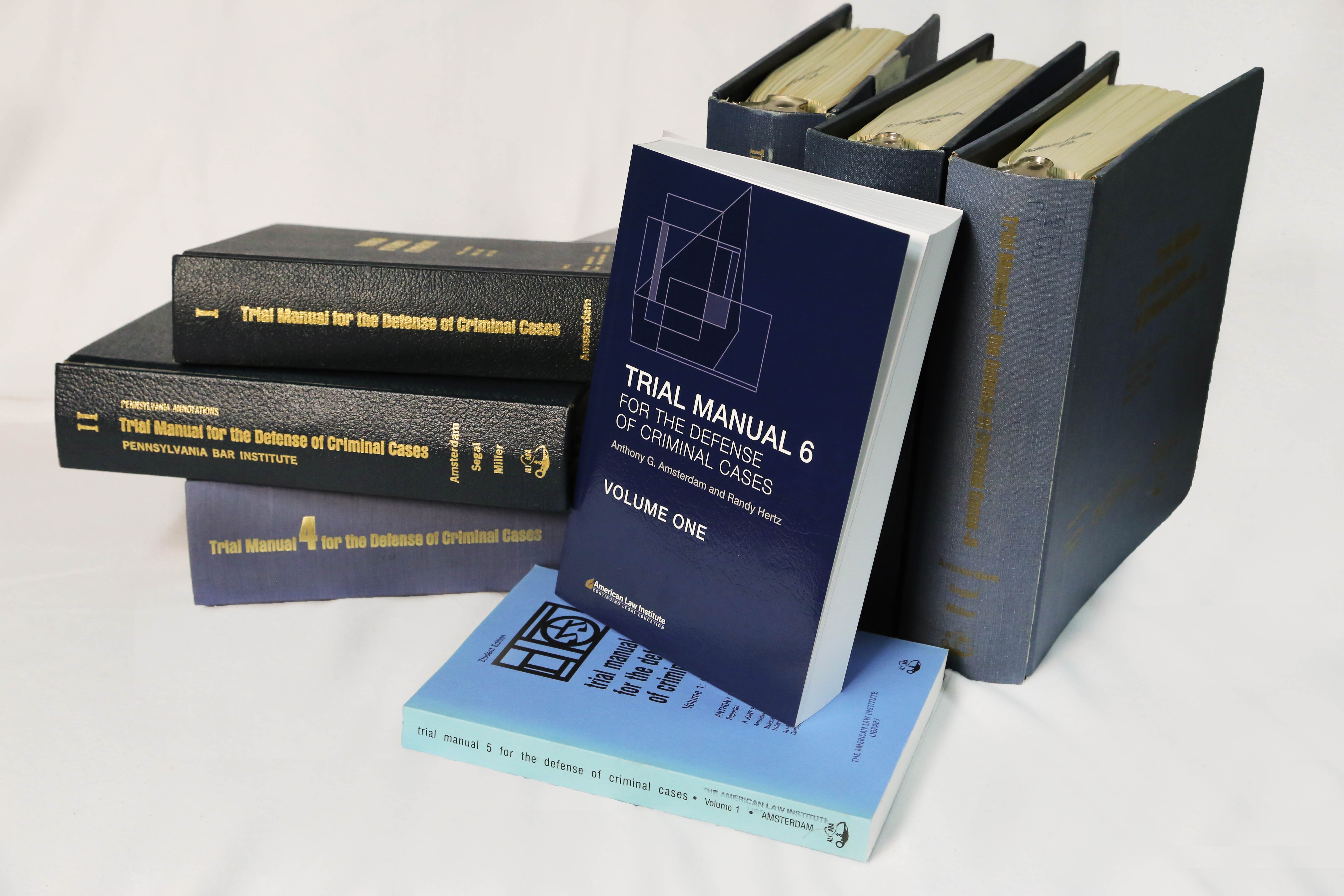 In 1967, A Trial Manual for the Defense of Criminal Cases was published by the ALI-ABA Joint Committee on Continuing Legal Education. The product of the combined effort of the ALI-ABA Joint Committee, the American College of Trial Lawyers, and the National Legal Aid and Defender Association, the Manual was designed for use in a course of study to be conducted throughout the country and as a working document for lawyers involved in the defense of persons accused of crime.
In 1967, A Trial Manual for the Defense of Criminal Cases was published by the ALI-ABA Joint Committee on Continuing Legal Education. The product of the combined effort of the ALI-ABA Joint Committee, the American College of Trial Lawyers, and the National Legal Aid and Defender Association, the Manual was designed for use in a course of study to be conducted throughout the country and as a working document for lawyers involved in the defense of persons accused of crime.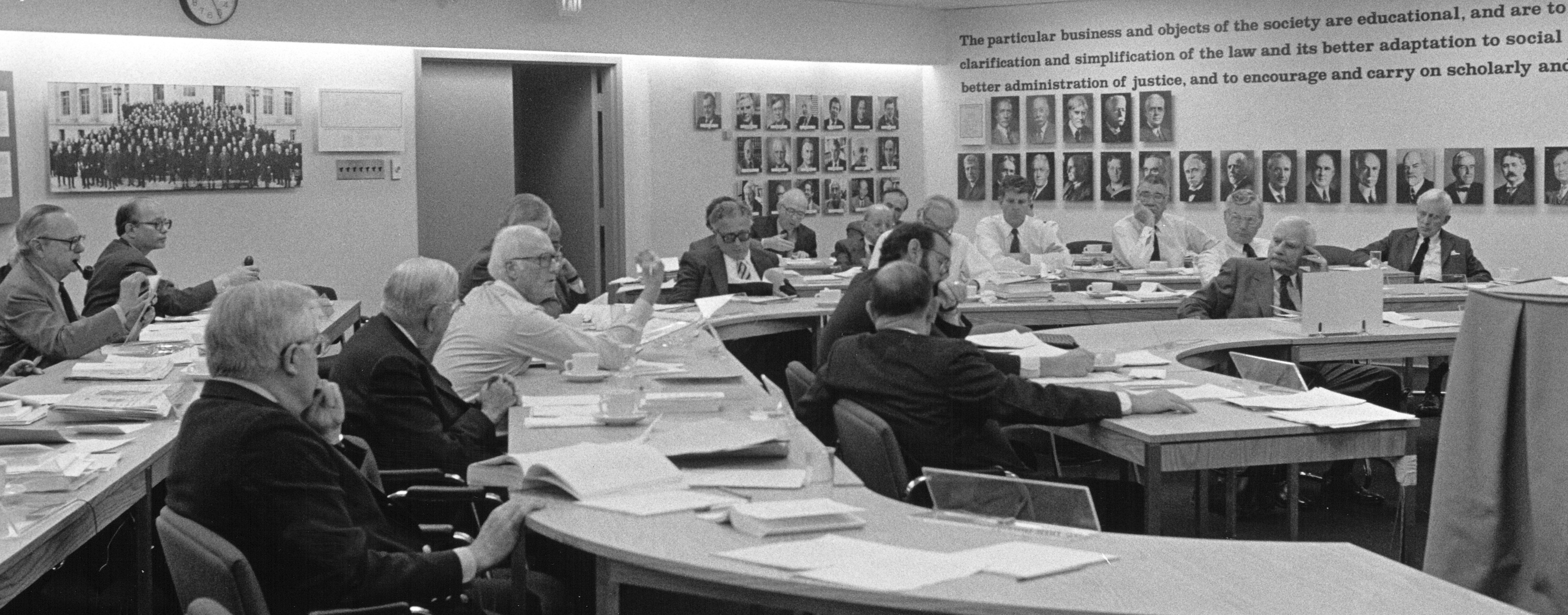
 Friendly, who died on March 11, 1986, at the age of 82, served on the U.S. Court of Appeals for the Second Circuit from 1959 until his death. He was a member of the ALI Council for a quarter of a century and an Adviser for the Study of the Division of Jurisdiction Between State and Federal Courts; the Model Code of Pre-Arraignment Procedure; the Federal Securities Code; and the Principles of Corporate Governance.
Friendly, who died on March 11, 1986, at the age of 82, served on the U.S. Court of Appeals for the Second Circuit from 1959 until his death. He was a member of the ALI Council for a quarter of a century and an Adviser for the Study of the Division of Jurisdiction Between State and Federal Courts; the Model Code of Pre-Arraignment Procedure; the Federal Securities Code; and the Principles of Corporate Governance.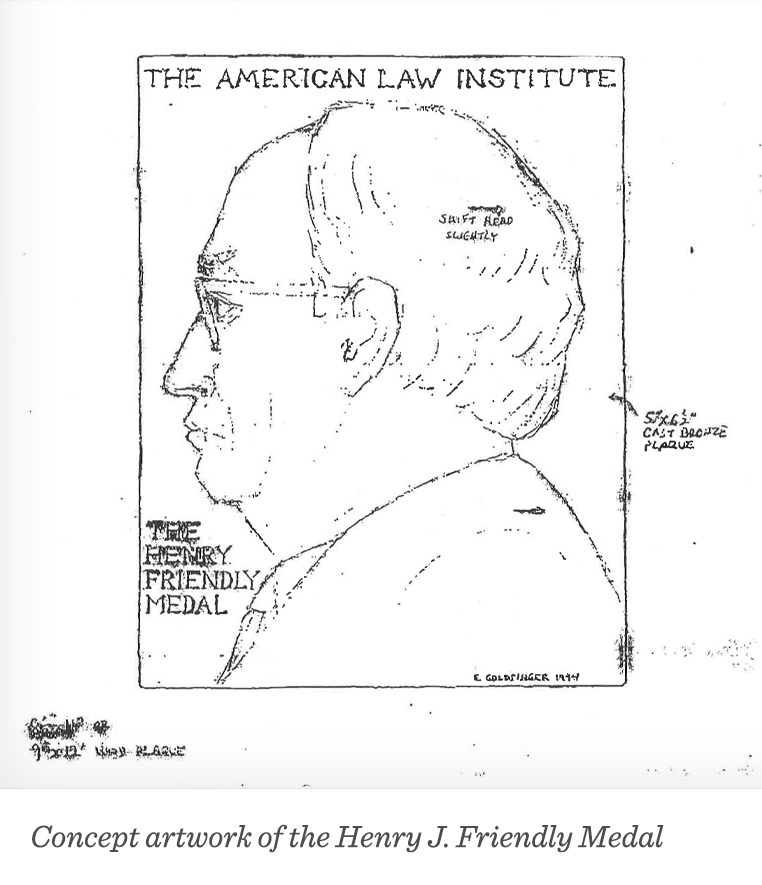 We view this as a celebration of the intellectual and spiritual kinship of two individuals that have so much in common. There is a universal admiration in the legal world for the integrity and quality of the scholarship of these two men; a universal appreciation of their dedication to public service and to the improvement of the processes of government; and a universal recognition of the humanity and quality of friendship and love that is in you, Ed, and that Henry displayed in his lifetime.
We view this as a celebration of the intellectual and spiritual kinship of two individuals that have so much in common. There is a universal admiration in the legal world for the integrity and quality of the scholarship of these two men; a universal appreciation of their dedication to public service and to the improvement of the processes of government; and a universal recognition of the humanity and quality of friendship and love that is in you, Ed, and that Henry displayed in his lifetime.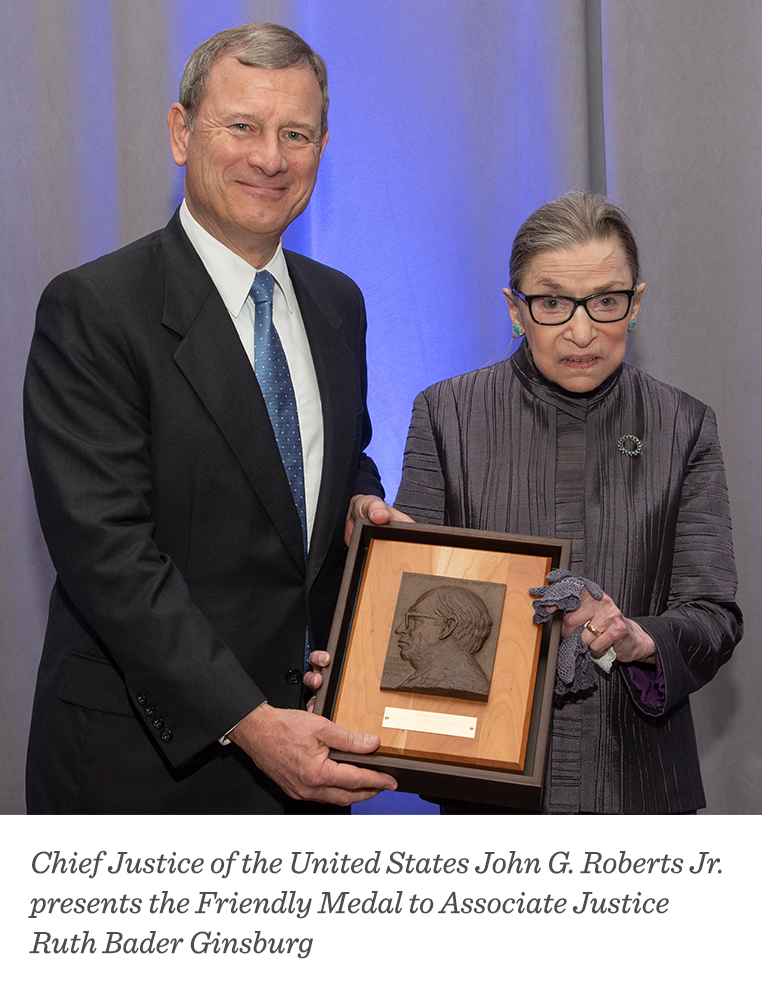
 “The Constitution is both color blind and color conscious. To avoid conflict with the equal protection clause, a classification that denies a benefit, causes harm, or imposes a burden must not be based on race. In that sense, the Constitution is color blind. But the Constitution is color conscious to prevent discrimination being perpetuated and to undo the effects of past discrimination. The criterion is the relevancy of color to a legitimate governmental purpose.”
“The Constitution is both color blind and color conscious. To avoid conflict with the equal protection clause, a classification that denies a benefit, causes harm, or imposes a burden must not be based on race. In that sense, the Constitution is color blind. But the Constitution is color conscious to prevent discrimination being perpetuated and to undo the effects of past discrimination. The criterion is the relevancy of color to a legitimate governmental purpose.”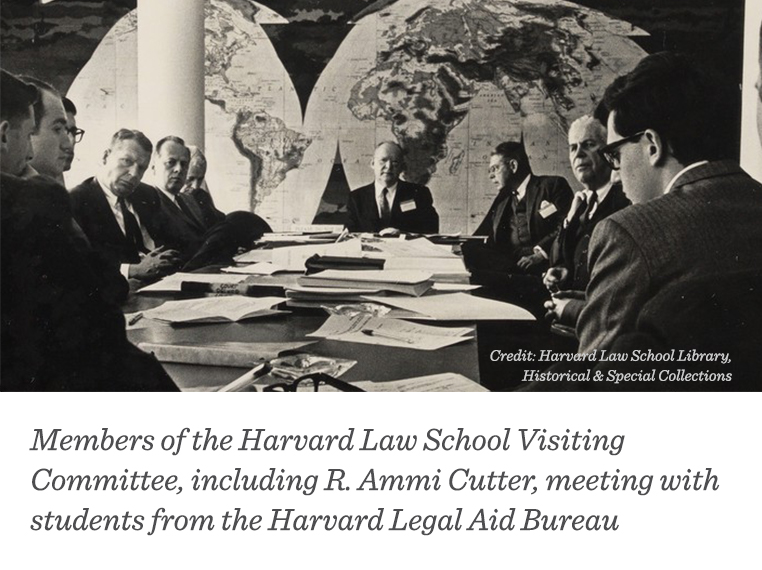 established in the name of then-Chairman of the Council Emeritus R. Ammi Cutter, retired Justice of the Massachusetts Supreme Judicial Court and former President of the Institute (1976-1980). The Cutter Chair is occupied by an active ALI Reporter of proven effectiveness for the remaining duration of the project on which the Reporter is engaged.
established in the name of then-Chairman of the Council Emeritus R. Ammi Cutter, retired Justice of the Massachusetts Supreme Judicial Court and former President of the Institute (1976-1980). The Cutter Chair is occupied by an active ALI Reporter of proven effectiveness for the remaining duration of the project on which the Reporter is engaged.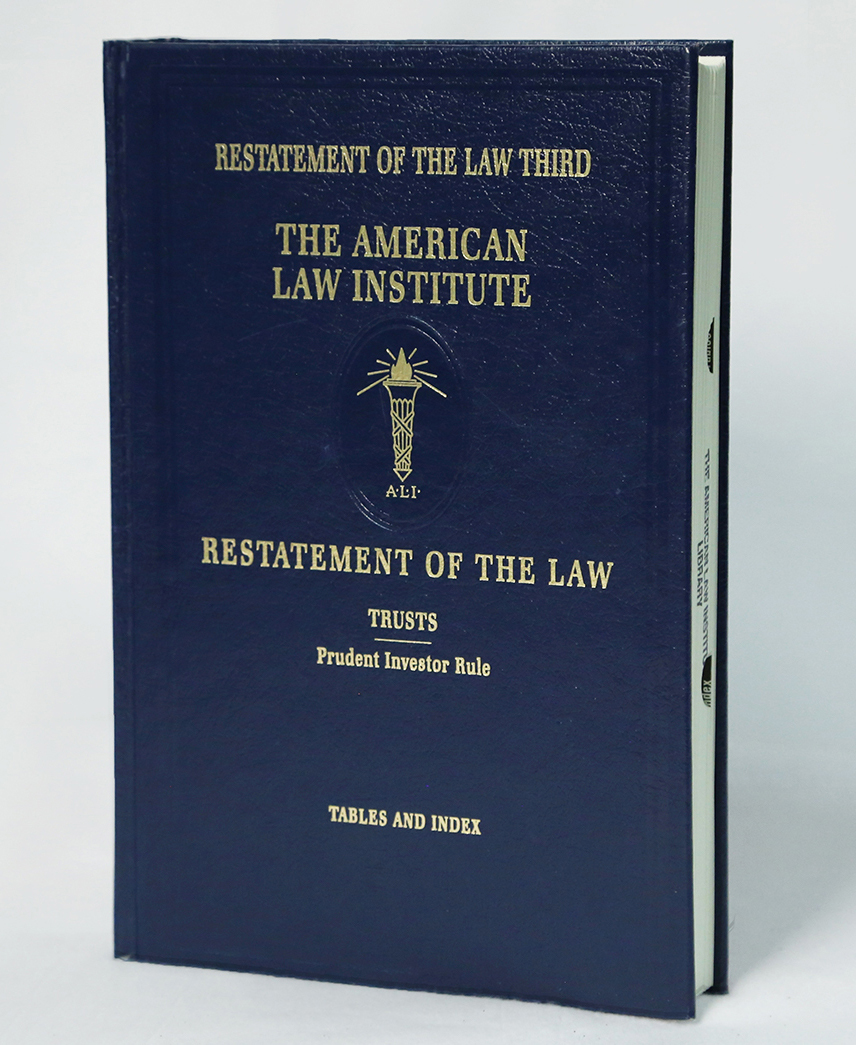 The incorporation of MPT into trust law was significantly advanced by the adoption of the Restatement (Third) of Trusts by the American Law Institute in May 1990. ERISA’s statutory and regulatory standards for prudent investing, diversification, and delegation of pension plan fiduciaries are also reflected in the Restatement (Third). Specifically, section 227 of the Restatement (Third) recognizes an expansion of the fiduciary responsibilities of trustees and provides greater latitude in fulfilling such responsibilities.
The incorporation of MPT into trust law was significantly advanced by the adoption of the Restatement (Third) of Trusts by the American Law Institute in May 1990. ERISA’s statutory and regulatory standards for prudent investing, diversification, and delegation of pension plan fiduciaries are also reflected in the Restatement (Third). Specifically, section 227 of the Restatement (Third) recognizes an expansion of the fiduciary responsibilities of trustees and provides greater latitude in fulfilling such responsibilities.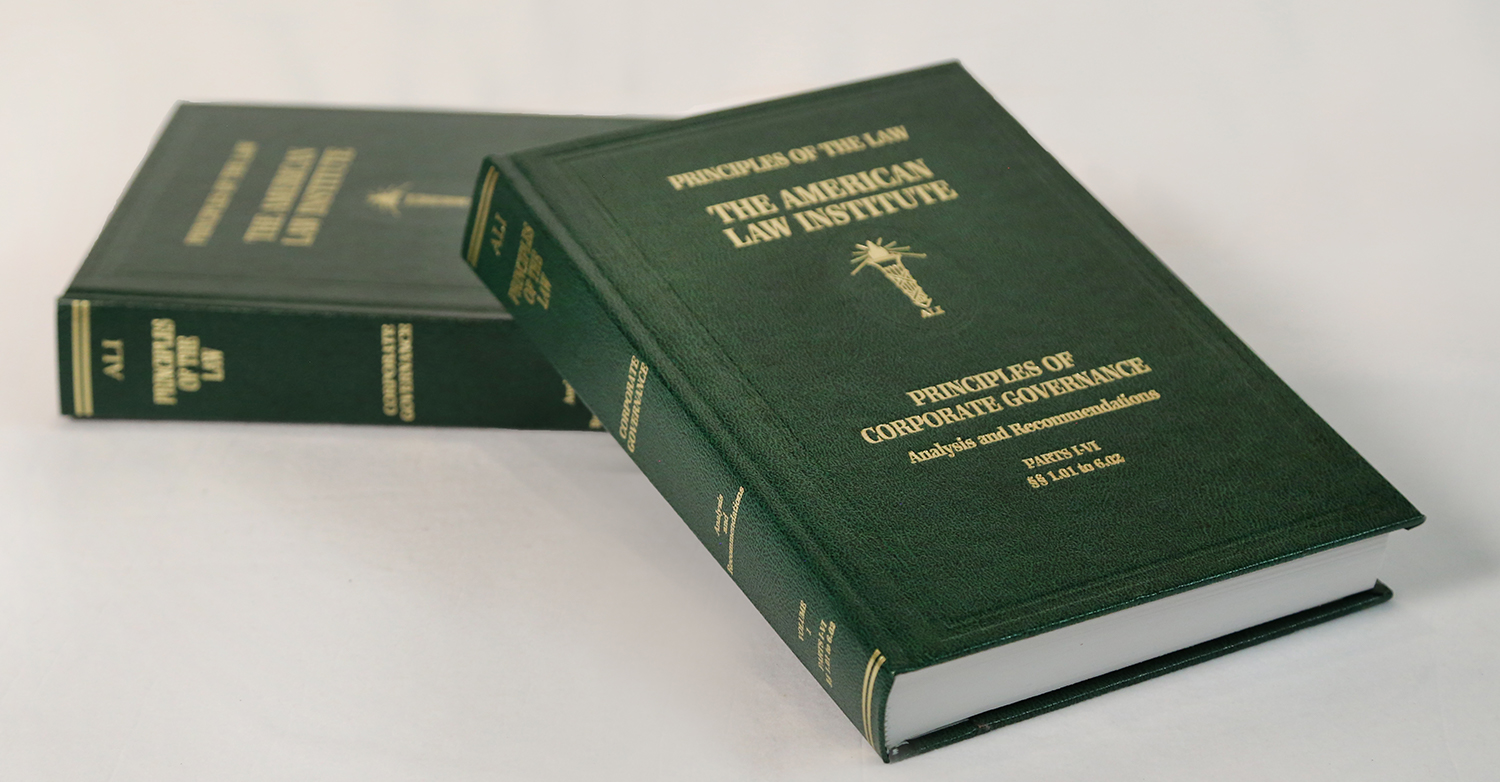 Governance project was almost as old as the Institute itself. At a meeting of ALI’s founding committee on February 23, 1923, ALI’s founders shared their report that included a section entitled "The Topics Which the Institute May First Undertake to Restate." One of the first topics suggested was business corporations.
Governance project was almost as old as the Institute itself. At a meeting of ALI’s founding committee on February 23, 1923, ALI’s founders shared their report that included a section entitled "The Topics Which the Institute May First Undertake to Restate." One of the first topics suggested was business corporations.
 On April 30, 2012, after much discussion, ALl and the ABA amicably ended their 65-year collaboration in continuing legal education known as ALI-ABA, with each entity moving forward on its own to produce continuing legal education programs.
On April 30, 2012, after much discussion, ALl and the ABA amicably ended their 65-year collaboration in continuing legal education known as ALI-ABA, with each entity moving forward on its own to produce continuing legal education programs.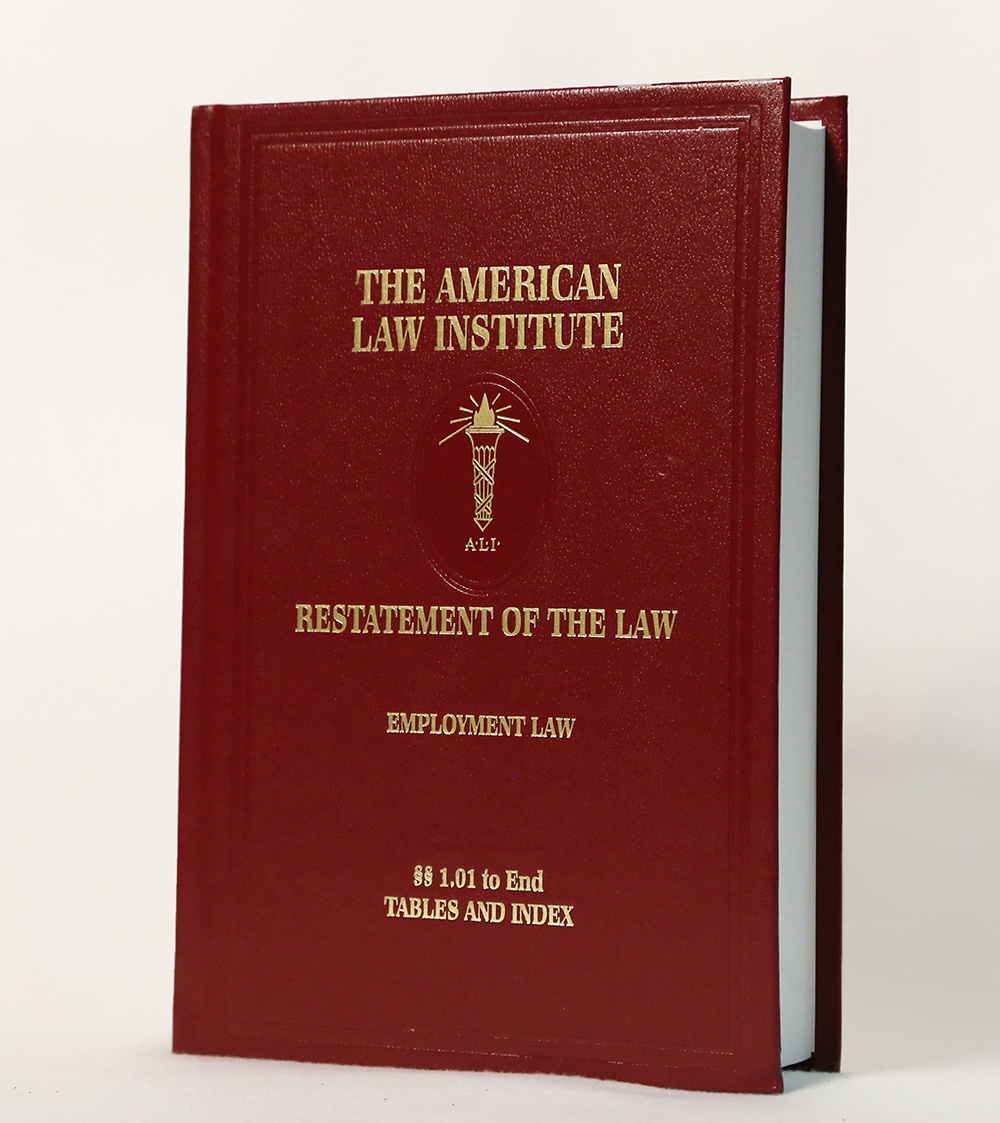 Beginning in 2014, the way that Restatements are “numbered” changed. Previously, Restatements were numbered based on their “series.” For example, the Restatement Second series began in 1952, thus any Restatement that launched from that date is a “Restatement of the Law, Second …” This is true even for Restatements that did not have a previous “edition,” i.e., Restatement Second of Foreign Relations Law.
Beginning in 2014, the way that Restatements are “numbered” changed. Previously, Restatements were numbered based on their “series.” For example, the Restatement Second series began in 1952, thus any Restatement that launched from that date is a “Restatement of the Law, Second …” This is true even for Restatements that did not have a previous “edition,” i.e., Restatement Second of Foreign Relations Law.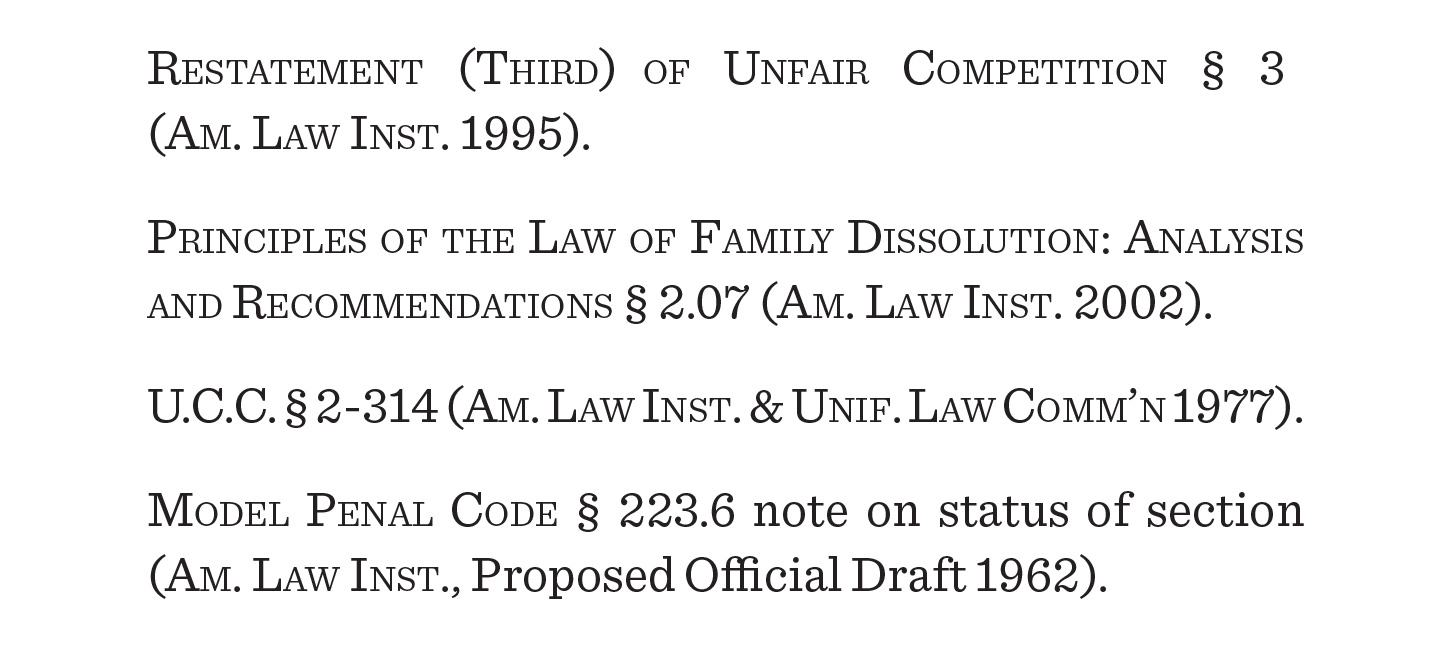
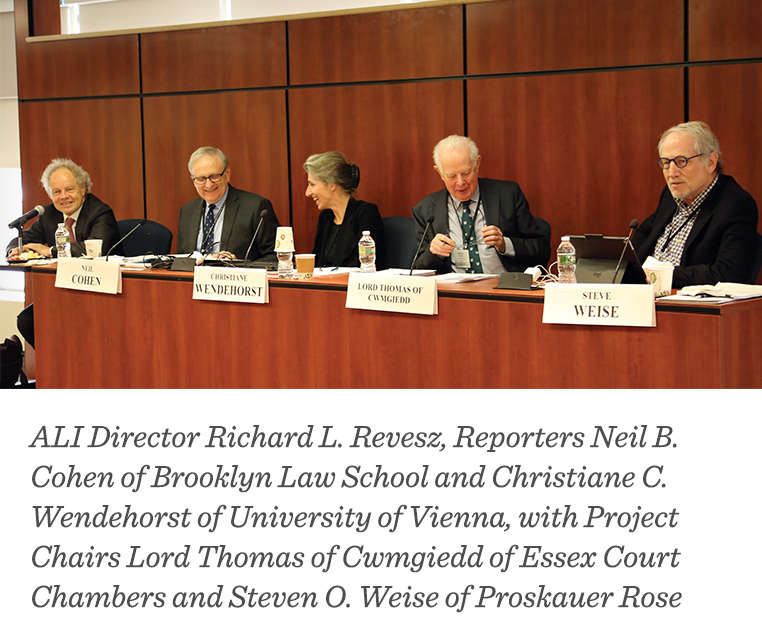 project is the first of its kind. It is being undertaken jointly by ALI and the European Law Institute (ELI), which, like the ALI, is a membership-based, independent nonprofit organization with the mission of providing guidance on legal developments.
project is the first of its kind. It is being undertaken jointly by ALI and the European Law Institute (ELI), which, like the ALI, is a membership-based, independent nonprofit organization with the mission of providing guidance on legal developments.
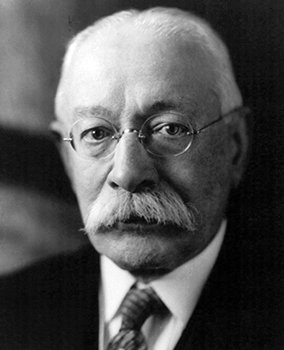
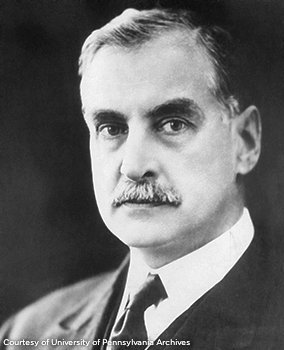
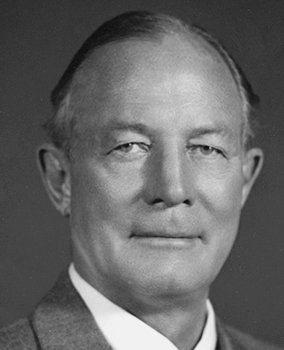
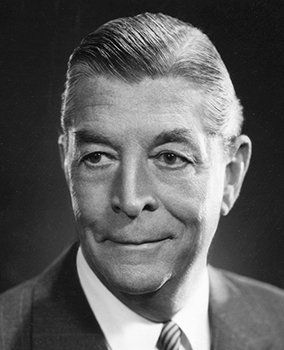
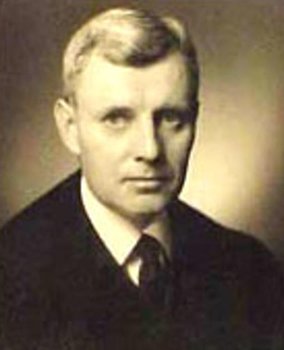
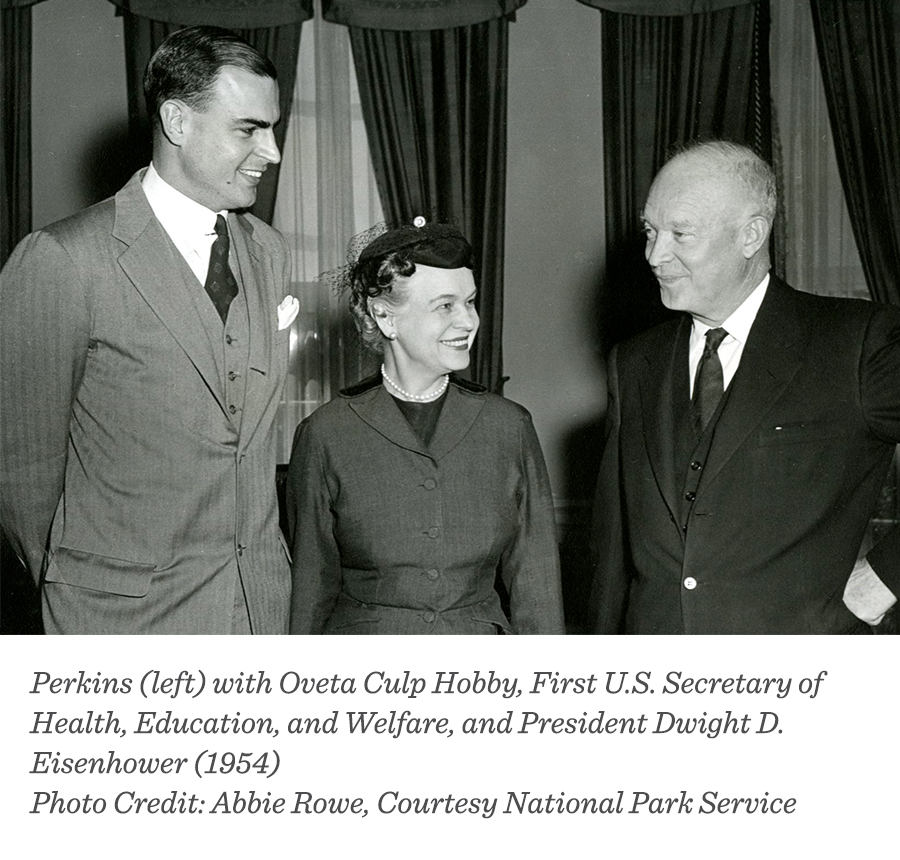
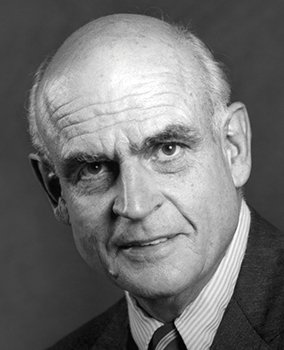
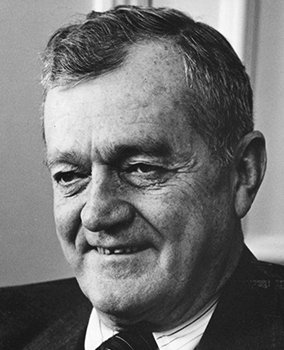
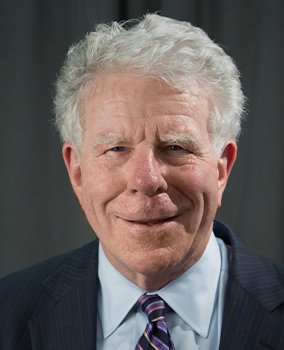
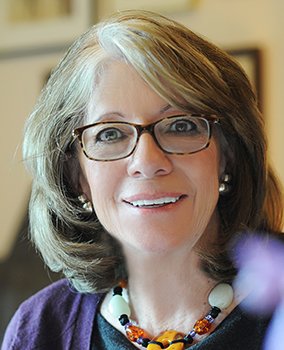

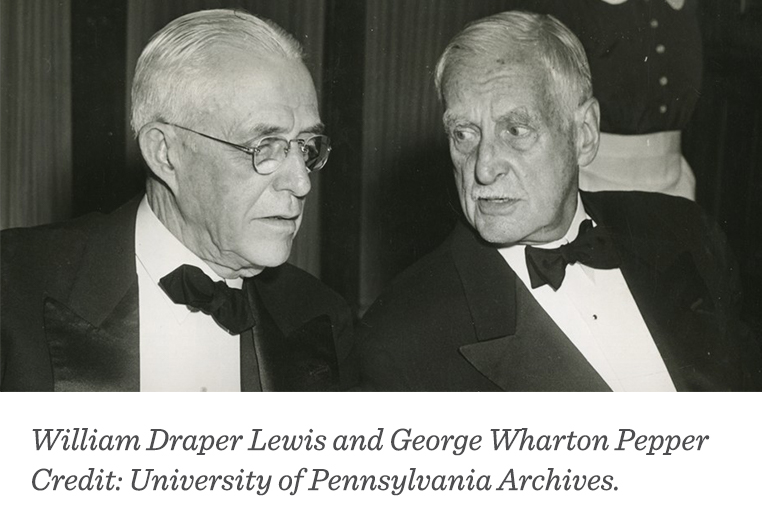
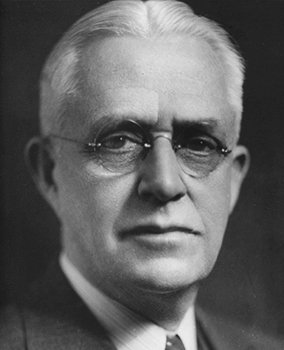
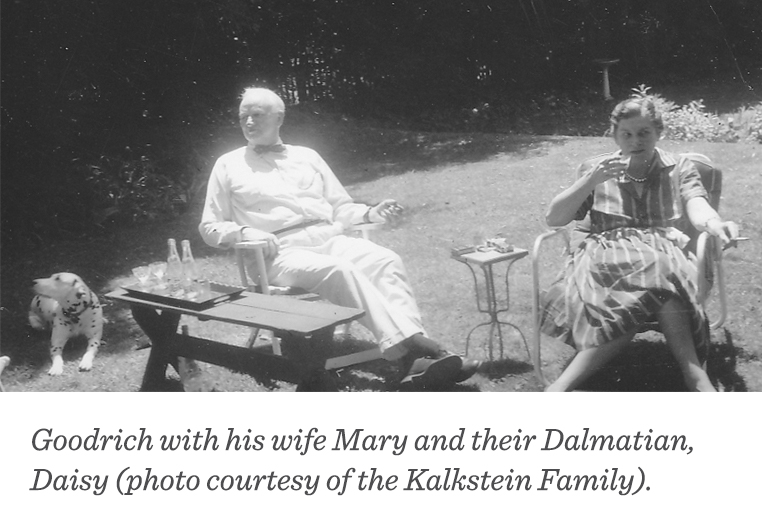
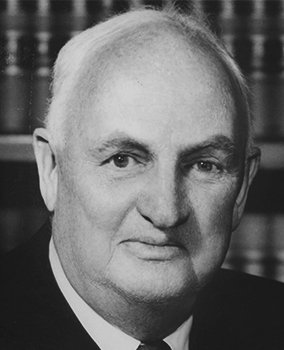
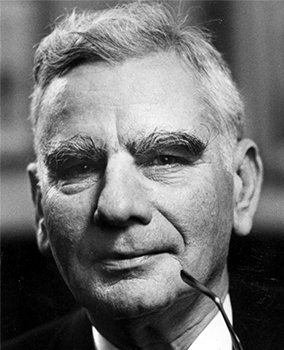
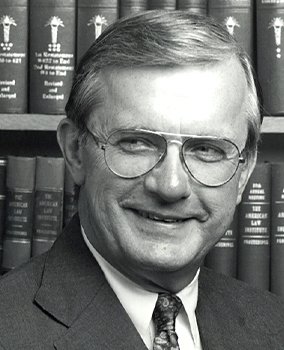
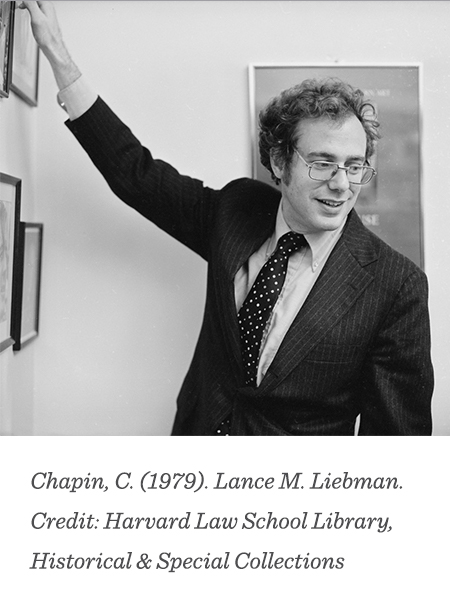 Liebman retired in 2019 from Columbia Law School where he was the William S. Beinecke Professor of Law Emeritus and former Dean. Before joining
Liebman retired in 2019 from Columbia Law School where he was the William S. Beinecke Professor of Law Emeritus and former Dean. Before joining 